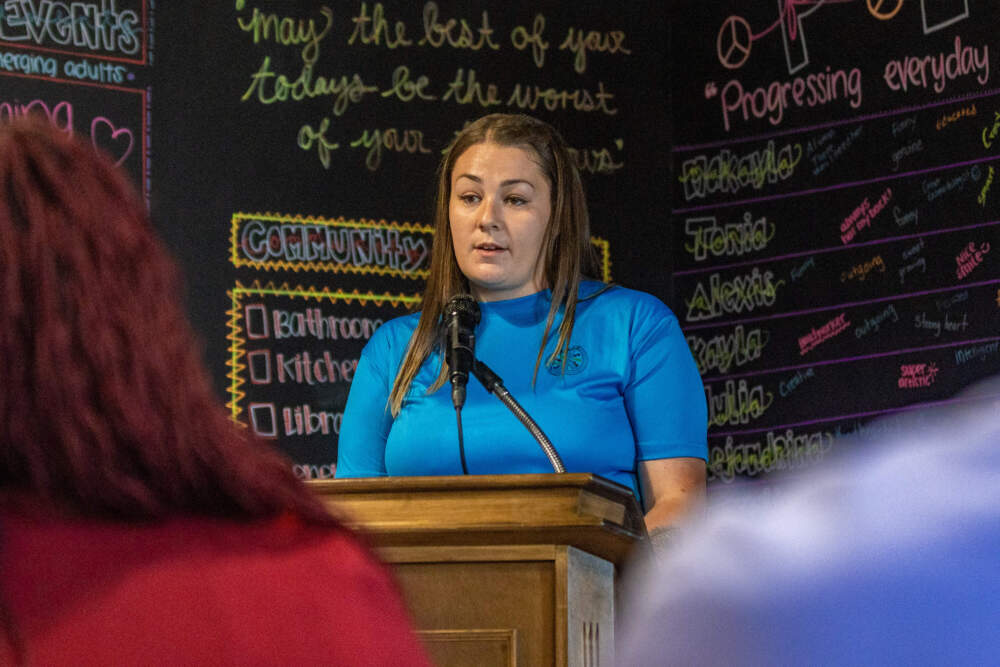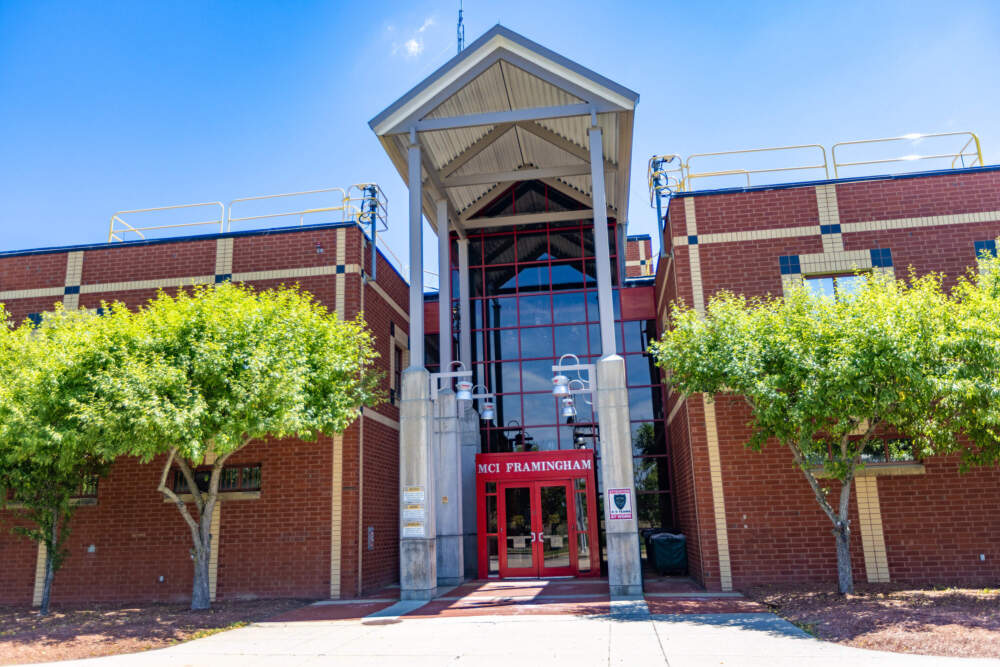Advertisement
Inside the ancient walls of the state's women's prison, a program for young inmates launches
Resume
The oldest prison for women in the nation is here in Massachusetts. MCI-Framingham, built in 1877, houses about 200 women. More than half of those in custody are serving sentences longer than six years.
Inside the aging facility is something new: a renovated space with a gleaming kitchen, gym, library and game room. The state Department of Correction's interim commissioner, Shawn Jenkins, said the upgrades are part of the prison's new so-called "PEACE program," which aims to help incarcerated women under 30.
"As we work with these young individuals, our hope is to forge bonds with family and have experiences in the unit to set them up for successful reentry back into their communities," Jenkins said at a recent event to celebrate its opening.
PEACE (an acronym for Progressing Every Day and Changing in Every Way) offers 3,000 square feet of renovated space for women to visit their families, study and prepare for release. Its seven current participants helped design the layout of the rooms, choosing books for the library, paint colors for the walls and fish for two fish tanks.
"This could shape us into somebody better," said Makayla Lowe, one of the participants. "Because not only is it just a program in prison, but it's built like we should want to live in a loft that looks like this. We should want a kitchen, a laundry room. You know, these are things that we should strive for when we get out."
Lowe, 27, has been incarcerated at Framingham for two years and will be eligible for parole next year. She has a job teaching computer skills at the prison and is involved in two higher education programs to get a degree. With the program now open from 8 a.m. to 8:30 p.m. every day, she said she plans to spend as much time as possible there.

Lowe also said program participants helped draw up the criteria for who could join.
"We're not going to let people just come up here and lounge around," Lowe said. "You have to work for something like this, and you have to want to be part of a community. It takes a lot to have that mentality in a place like this."
Lowe said she has turned her life around and is eager to be on a better path and reuniting with her two children, ages six and nine, when she gets released.
"They're my main motivation," Lowe said. "That's why I'm trying so hard."
PEACE was funded with a $250,000 appropriation in the state budget for programming for young women in prison. Participants do not receive time off their sentences or "good time" for joining. However, the Department of Correction said that's a future goal of the program. The effort was modeled after one for incarcerated men under age 25 who have children. The Department of Correction began that program, known as the BRAVE unit, in 2021.
“This new unit is designed to empower program participants with meaningful skill development, while strengthening essential family bonds and disrupting cycles of adversity that can lead to recidivism," Gov. Maura Healey said in a statement.
Advertisement
For years, people have debated how to deal with the aging Framingham prison. Healey, as part of her capital investment plan, set aside $1 million for design and planning at the facility, and up to $50 million over five years. But advocates say state dollars would be better spent on more programs and preventative efforts to keep women out of state custody.

They argue efforts to reduce incarceration, such as community supervision, wider use of medical parole for ill prisoners and more reentry support would help further reduce the state's incarceration rate. The Department of Correction's $840 million budget for fiscal year 2025 allocated less than 1% for reentry programming.
"It's always important to improve women's material conditions," said Mallory Hanora, with the group Families for Justice as Healing, which has fought plans for a new state women's prison.
"The incarcerated women that I've spoken with are really looking for more significant change, opportunities for release and to heal and advance their lives, which they don't feel they can do inside of a prison," Hanora added.
According to the Department of Correction, the Massachusetts prison population declined by more than 40% over the past decade. The state closed some men's prisons because of those low numbers.
"We need to be reinvesting this money in reentry for our people coming home and also shifting that investment into community solutions and community-led programming and services to interrupt the cycle that drives people back into incarceration," Hanora said.
Hanora and other advocates are pushing for a five-year moratorium on any new prison construction in the state, a measure former Gov. Charlie Baker vetoed in 2022. Lawmakers are now considering similar legislation. It does not preclude repairs, but it would block the state from studying, planning, designing, acquiring, leasing or searching for sites, or building new facilities.
This segment aired on June 21, 2024.
